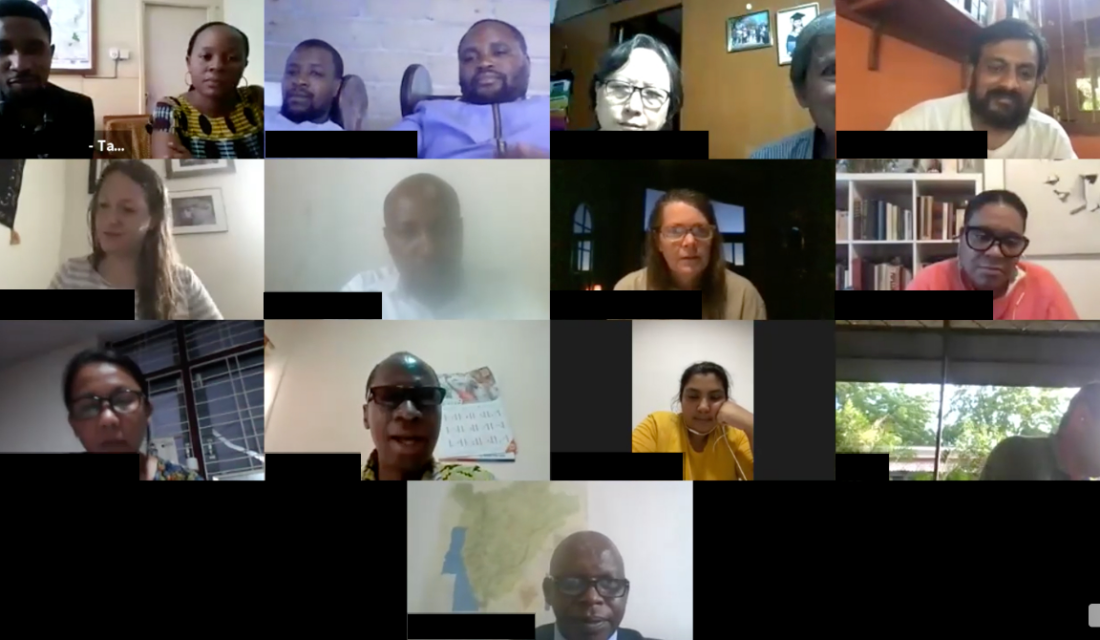ACTION 11: DIALOGUE ON COVID-19 AND GBV

Episcopal Relief and Development staff facilitate a Climate Resilience meeting with global partners over Zoom due to the COVID-19 pandemic.
Faith
He has told you, O mortal, what is good; and what does the Lord require of you but to do justice, and to love kindness, and to walk humbly with your God?
Micah 6:8
Fact Sheet
- Globally, as many as 38% of murders of women are committed by a male intimate partner.[1]
- In the US, only five states explicitly list domestic-violence shelters, and thereby those who work in them, as essential in their guidance on COVID-19 responses.[2]
Reflection and Action
Women and children’s exposure to gender-based violence (GBV) usually increases during disasters and other crises. The the United Nations Population Fund urges us to pay attention to GBV risks in disaster-management laws, policies and planning, and to assume GBV is taking place, even if no reliable data is available.[3]
Relief Web notes in its policy brief on GBV and COVID-19 that, in light of the physical-distancing requirements and movement restrictions put in place across the world to curb the pandemic, women and girls face an increased risk of experiencing violence at the hands of family members, intimate partners or others living within their homes. In all emergency-affected settings, individuals known to the victims, not strangers, perpetrate most cases of GBV. Factors such as emotional stress, economic strain and shifting roles and responsibilities among family members often exacerbate the risk of experiencing household violence during times of crisis. With these risks combined with lockdowns and other movement restrictions, homes within the context of COVID-19 can become potential pressure cookers of GBV as drivers of violence increase while survivors and those at risk are more restricted than ever in their ability to seek safety or other necessary forms of support.
The Anglican Alliance and the Anglican Consultative Council published “Domestic Abuse and COVID-19: How Churches Can Respond” in response to escalating rates of domestic violence and calls to national helplines during the global health pandemic. The guidelines call upon the Church to follow the 4 Rs when responding to GBV: recognize that GBV is occurring; respond by saying, “I believe you”; refer the survivor to proper resources; and record what the survivor said. We encourage you to read the guidelines and consider which R your community can strengthen in its response to GBV.
Recommended reading
“Loving One Another: A Biblical Discussion Toolkit on Gender-Based Violence,” Anglican Service of Diakonia and Development (SADD) of the Anglican Church of Brazil, Global Partnerships Committee of the Scottish Episcopal Church and Christian Aid Scotland
Footnotes
[1] https://www.who.int/news-room/fact-sheets/detail/violence-against-women
[2] https://www.cisa.gov/publication/guidance-essential-critical-infrastructure-workforce.
[3] https://lac.unfpa.org/sites/default/files/pub-pdf/UNFPA%20version%20ingles%201.pdf


